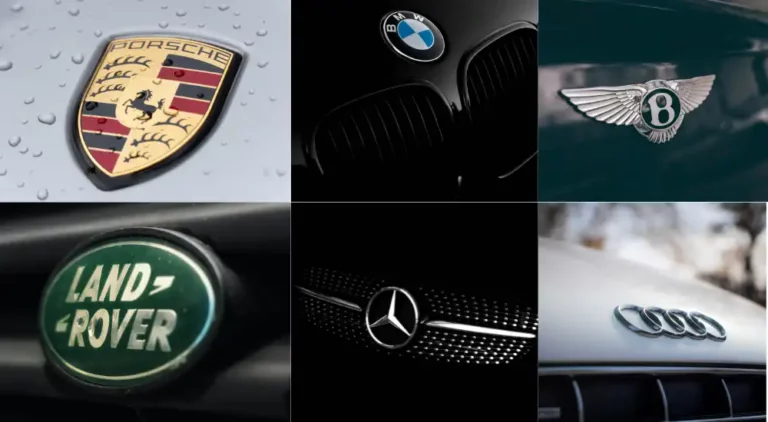Returning A Brand New Car: A Comprehensive Guide
Returning A Brand New Car: A Comprehensive Guide cars.truckstrend.com
The exhilaration of driving a brand new car off the lot is a unique feeling – the pristine paint, the new car smell, the quiet hum of a perfect engine. For most, this moment marks the beginning of years of reliable service and enjoyment. However, for a rare few, that dream can quickly turn into a nightmare, leading to the daunting question: can I return this brand new car?
Unlike returning a faulty appliance or an ill-fitting piece of clothing, returning a brand new car is far from a straightforward process. It’s a complex legal and contractual endeavor, often fraught with challenges. This comprehensive guide aims to demystify the process of returning a brand new car, exploring the limited circumstances under which it’s possible, the steps involved, and how to protect yourself.
Returning A Brand New Car: A Comprehensive Guide
The Rarity of New Car Returns: Why It’s Not Like Returning a T-Shirt
One of the most common misconceptions among car buyers is the existence of a "cooling-off period" or a general right to return a vehicle simply due to buyer’s remorse. In the vast majority of U.S. states and many other countries, there is no federally mandated cooling-off period for vehicle purchases. Once you sign the purchase agreement, the vehicle is legally yours, and the sale is considered final. Dealerships are generally not obligated to accept returns for reasons like changing your mind, finding a better deal elsewhere, or realizing the car doesn’t fit your lifestyle.
The purchase of a vehicle is a significant legal transaction, backed by a binding contract. This contract outlines the terms of sale, financing, and delivery. Breaking such a contract without legitimate cause is difficult and can lead to financial penalties. This legal framework is why returning a new car is an exception, not a rule, and typically only occurs under very specific, legally defined circumstances.
Legitimate Grounds for Returning a New Car
While buyer’s remorse won’t cut it, there are several legitimate, albeit rare, grounds that might allow you to return or compel a manufacturer to repurchase a brand new car. Understanding these distinctions is crucial.
1. Lemon Law (Major Defects)

The most common and legally protected pathway for returning a new car is through Lemon Law. Enacted at the state level in the U.S. (and similar consumer protection laws exist globally), Lemon Laws protect consumers who purchase new vehicles with substantial defects that cannot be repaired after a reasonable number of attempts.
Key Criteria for a Lemon Car:
- Substantial Impairment: The defect must significantly impair the vehicle’s use, value, or safety. Minor issues like a squeaky dashboard usually don’t qualify.
- Repeated Repair Attempts: The manufacturer or authorized dealer must have made a "reasonable number" of attempts to fix the same defect (e.g., 3-4 attempts for the same issue).
- Out of Service Time: The vehicle has been out of service for a cumulative number of days (e.g., 30 days) due to repairs for one or more defects.
- Within Warranty Period/Mileage: The defect and repair attempts must occur within a specific time frame or mileage limit, as defined by state law (e.g., 12-24 months or 12,000-24,000 miles from purchase).

If your vehicle meets these criteria, you may be entitled to a repurchase of the vehicle (less a mileage offset for usage), a replacement vehicle, or a cash settlement.
2. Contractual Breaches or Misrepresentation

If the dealership or salesperson engaged in fraudulent misrepresentation (e.g., lied about the car’s features, history, or condition) or breached a material term of the purchase contract, you might have grounds for rescission of the contract. This is a complex legal claim and typically requires proving intent or a significant failure to uphold agreed-upon terms.
3. Financing Issues (Conditional Approval)
In some rare instances, a buyer might take delivery of a car under "conditional financing approval." This means the sale is contingent on final approval from the lender. If the financing ultimately falls through after you’ve taken the car home (e.g., due to a credit check issue), the dealership may require you to return the vehicle. However, this is usually a condition initiated by the dealership, not a right of the buyer to return the car.
4. Dealership Return Policy (Extremely Rare)
While not legally required, a very small number of dealerships might offer a short-term (e.g., 24-hour or 3-day) return policy as a customer service gesture, often with significant restocking fees or conditions (e.g., limited mileage, no damage). This is highly unusual for new car sales and must be explicitly stated in writing as part of your purchase agreement. Do not assume such a policy exists unless you have it in black and white.
The Step-by-Step Process for Returning a New Car (When Legitimate Grounds Exist)
If you believe you have legitimate grounds to return your brand new car, follow these steps:
-
Document Everything Meticulously: This is paramount. Keep detailed records of:
- All repair orders, invoices, and diagnostic reports.
- Dates the vehicle was brought in for service and when it was returned.
- Mileage readings at each service visit.
- All communication with the dealership and manufacturer (dates, names, what was discussed, emails, letters).
- Photos or videos of the defect, if applicable.
-
Communicate with the Dealership:
- Start with the Service Manager to address the defect. Ensure they understand the recurring nature of the problem.
- If the issue persists, escalate to the Sales Manager, then the General Manager. Clearly state your concerns and your belief that the vehicle is a "lemon" or that a contractual breach has occurred.
-
Contact the Manufacturer: If the dealership is unresponsive or unable to resolve the issue, contact the vehicle manufacturer’s customer service department directly. Open a case with them and provide all your documentation. They often have internal processes for handling such disputes.
-
Understand Your Rights (Lemon Law Process): If your issue falls under Lemon Law, you’ll need to follow your state’s specific procedures. This typically involves:
- Sending a Certified Letter: Formally notify the manufacturer of the defect and your intent to pursue a Lemon Law claim.
- Allow a Final Repair Attempt: The manufacturer may request one final opportunity to repair the vehicle.
- Arbitration: Many manufacturers participate in state-sponsored or independent arbitration programs. This is often a mandatory step before filing a lawsuit. Present your case and evidence to the arbitrator.
-
Seek Legal Counsel: For complex cases, especially those involving Lemon Law or contractual disputes, consulting an attorney specializing in consumer protection or Lemon Law is highly recommended. An attorney can:
- Evaluate your case and advise on your rights.
- Help gather evidence and prepare your claim.
- Represent you in negotiations, arbitration, or litigation.
- Crucially, many Lemon Law statutes include provisions that require the manufacturer to pay your legal fees if you win your case, making legal representation more accessible.
-
Formal Demand Letter: Before litigation, your attorney will likely send a formal demand letter to the manufacturer, outlining your claim and desired resolution (repurchase, replacement, or cash settlement).
What to Expect During a Return Process
Returning a new car is rarely quick or easy. Expect patience and persistence to be your greatest assets.
-
Resistance: Dealerships and manufacturers are businesses; they will often resist a return or repurchase, as it impacts their bottom line.
-
Investigation: The manufacturer will thoroughly investigate your claim, reviewing service records and potentially inspecting the vehicle.
-
Potential Outcomes:
- Repurchase: The manufacturer buys the car back from you, typically refunding the purchase price, sales tax, registration fees, and any finance charges. A mileage offset or "usage fee" will be deducted from the refund for the miles you drove the vehicle before the defect was reported.
- Replacement: The manufacturer provides you with a comparable new vehicle. You might still be responsible for a mileage offset on the original vehicle.
- Cash Settlement: The manufacturer offers a monetary payment to compensate you for the diminished value or inconvenience, allowing you to keep the vehicle.
- Further Repairs: The manufacturer may propose one last attempt at repair if they believe it can resolve the issue.
-
Financial Implications:
- Loan Payoff: If you financed the car, the repurchase amount will first go to pay off your outstanding loan.
- Insurance & Registration: You’ll need to cancel insurance and potentially seek a refund for unused registration fees.
- Legal Fees: While potentially recoverable under Lemon Law, you might incur upfront legal costs.
Avoiding the Need for a Return: Pre-Purchase Due Diligence
The best way to avoid the headache of returning a new car is to prevent the situation entirely.
- Thorough Test Drive: Don’t rush. Drive the car on various road conditions (highway, city, bumps). Test all features: infotainment, climate control, lights, wipers, power windows, etc.
- Independent Pre-Purchase Inspection (PPI): While rare for new cars, for very high-end or complex vehicles, or if you have any doubts, consider having an independent mechanic inspect it before final purchase.
- Review Contract Carefully: Read every line of the purchase agreement, financing documents, and warranty information. Ask questions about anything you don’t understand. Do NOT sign until you are 100% comfortable.
- Research Vehicle Reliability: Consult reputable consumer reports (e.g., Consumer Reports, J.D. Power) for reliability ratings and common issues for the specific make and model you are considering.
- Understand Dealership Policies: If a dealership claims to have a return policy, get it in writing and understand all the terms and conditions.
Table of Potential Financial Considerations When Returning a New Car
This table outlines various financial aspects a consumer might encounter or need to consider during a new car return process, especially under Lemon Law.
| Category | Description | Potential Cost (to Consumer) | Potential Recovery (for Consumer) | Notes |
|---|---|---|---|---|
| Purchase Price | The base price paid for the vehicle. | N/A | ✅ (Less Mileage Offset) | This is the primary amount recouped. |
| Sales Tax | Taxes paid on the original purchase. | N/A | ✅ | Usually fully recoverable with the purchase price. |
| Registration & Tags | Fees paid for vehicle registration and license plates. | N/A | ✅ | Often fully recoverable. |
| Finance Charges | Interest paid on the car loan up to the point of repurchase. | N/A | ✅ | Recoverable if the car was financed. |
| Incidental Costs | Related expenses due to the defect: towing fees, rental car fees, alternative transportation. | N/A | ✅ | Requires documentation (receipts). |
| Legal Fees | Costs for hiring an attorney. | ✅ (Upfront) | ✅ (If You Win Lemon Law Case) | Many Lemon Laws require the manufacturer to pay your reasonable legal fees if you prevail. |
| Arbitration Fees | Costs associated with mandatory arbitration (if applicable). | ✅ (Minor) | N/A | Generally minor, sometimes waived. |
| Independent Inspection | Cost of hiring an independent mechanic to verify the defect (if needed for evidence). | ✅ | N/A | Optional, but can strengthen your case. |
| Mileage Offset/Usage Fee | A deduction from the repurchase amount for the use of the vehicle before the defect was reported. | ✅ (Deducted) | N/A | Calculated based on miles driven and often stipulated by state law (e.g., per mile rate or formula). This is non-recoverable. |
| Insurance Premiums | Premiums paid for car insurance during ownership. | ✅ | N/A | Generally not recoverable from the manufacturer, but you can cancel the policy and seek a refund for unused portions. |
| Loan Interest (Post-Repurchase) | If the repurchase takes time, interest might accrue on the loan until it’s paid off. | ✅ | N/A | Emphasizes the need for timely resolution. |
Frequently Asked Questions (FAQ)
Q1: Is there a 3-day cooling-off period for car purchases?
A1: No, in most U.S. states, there is no federally mandated 3-day (or any duration) cooling-off period for car purchases. Once you sign the contract, the sale is generally final. Any such period would be a rare, specific dealership policy, which must be explicitly stated in your contract.
Q2: What is a "lemon car"?
A2: A "lemon car" is a new vehicle with a significant defect or defects that substantially impair its use, value, or safety, and which the manufacturer or dealer has been unable to repair after a reasonable number of attempts (typically 3-4 attempts for the same issue or extended time out of service).
Q3: How long does the new car return process take?
A3: The process can be lengthy. From initial repair attempts to a final resolution (repurchase, replacement, or settlement), it can take several months, sometimes even over a year, depending on the complexity of the case, state laws, and whether legal action becomes necessary.
Q4: Do I get all my money back if my car is declared a lemon?
A4: Under Lemon Laws, you typically get back the full purchase price, including sales tax, registration, and finance charges. However, a "mileage offset" or "usage fee" will be deducted for the miles you drove the vehicle before the defect was reported. This deduction varies by state law.
Q5: Can I return a car if I just don’t like it or found a better deal?
A5: No, generally not. Buyer’s remorse, finding a better price, or simply not liking the car after purchase are not legally recognized grounds for returning a new vehicle. The purchase contract is binding.
Q6: What if my financing falls through after I’ve already taken the car home?
A6: If your purchase was based on "conditional financing approval" and the final approval doesn’t come through, the dealership may have the right to demand the return of the vehicle. This scenario is usually initiated by the dealer, not a buyer’s right to return.
Conclusion
Returning a brand new car is an intricate and challenging process, far removed from the ease of returning other retail items. It is a rare occurrence, almost exclusively reserved for situations involving significant, unresolvable defects covered by Lemon Law, or in cases of clear contractual breaches or misrepresentation.
The key takeaway is preparedness: meticulously document every interaction and repair, understand your state’s specific Lemon Laws, and do not hesitate to seek legal counsel if you believe your rights have been violated. While the ideal scenario is to avoid this situation through thorough pre-purchase due diligence, knowing your rights and the proper channels can provide a crucial lifeline if your new car turns out to be a lemon.





